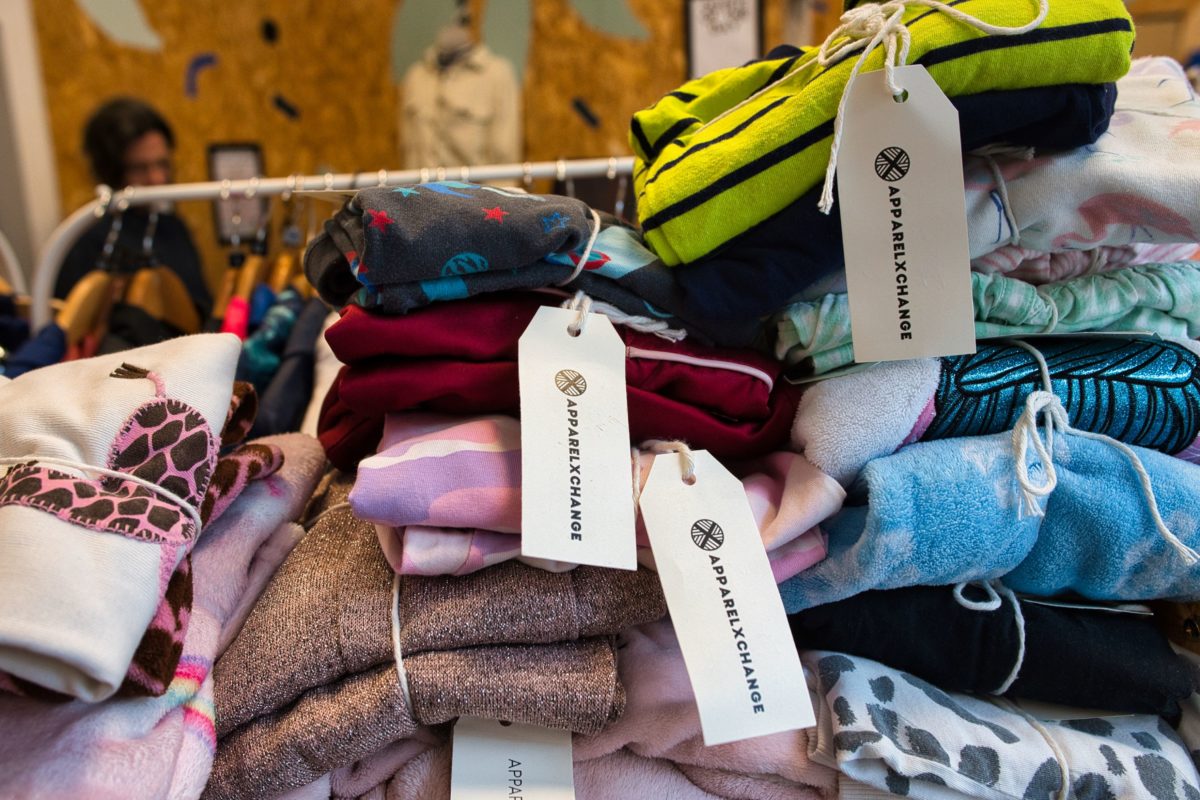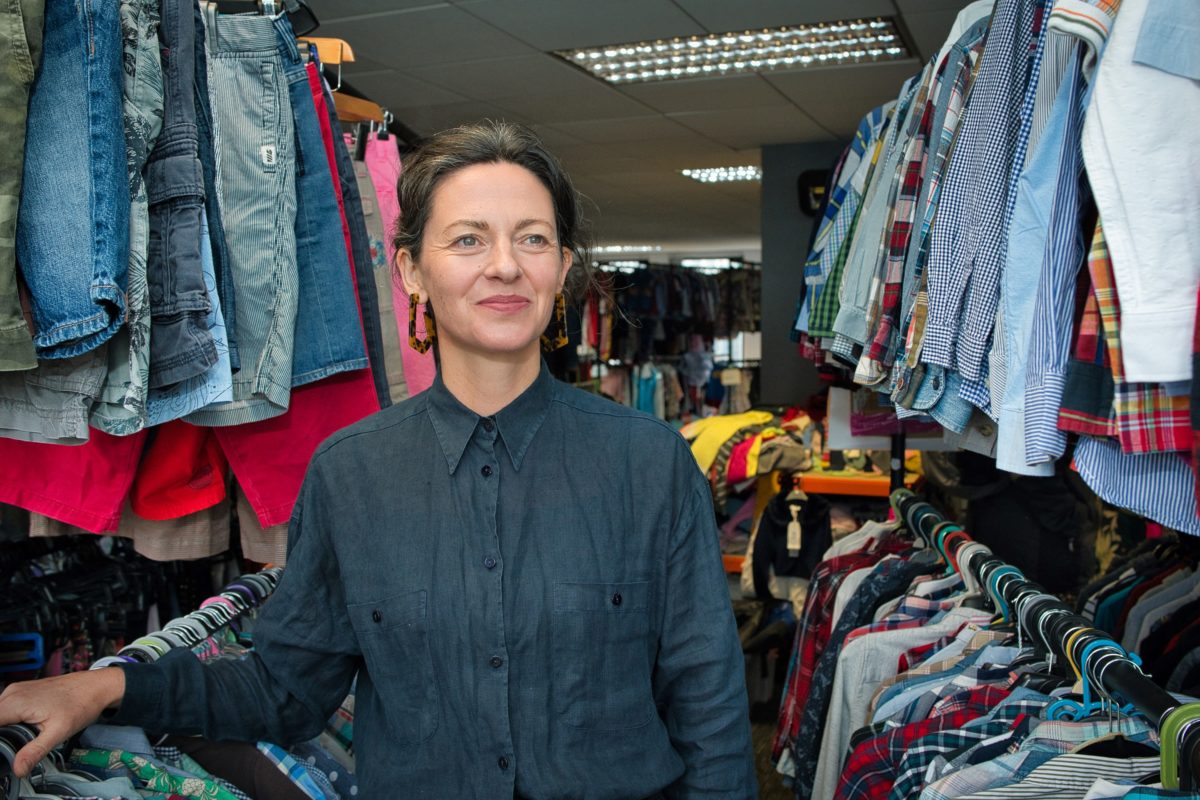Winner of the 2023 Social Innovation Challenge revealed
ApparelXchange, a social enterprise dedicated to reusing, repairing and recycling childrenswear, is the winner of this year’s Social Innovation Challenge.
We are delighted to announce that ApparelXchange has been crowned the Social Innovation Challenge 2023 winner. ApparelXchange is creating a clothing system for the city of Glasgow, with a shared wardrobe that aims to reduce the financial burden on families of clothing purchases and the carbon impact of clothing on the environment.
They will use the £50,000 grant funding prize to get the connected and integrated clothing system up and running across the city.
ApparelXchange was established by founding director Izzie Eriksen, a parent struck by the waste and cost of school uniforms. They began work in 2018 with pop-up uniform shops in schools. Over the last five years, they have become one of Glasgow’s larger providers of preloved children’s clothing, and through their online shop, a leading retailer of high-quality preloved children’s clothing across the UK.
A vision for a shared wardrobe for the city emerged from their desire to tackle the deep-rooted problem of clothing poverty and waste, combined with a noticeably increased demand for their free package services, which offer families most in need packages of free clothing.

In the context of the cost-of-living crisis affecting families across the country, clothing purchases can considerably strain families’ budgets, particularly in Glasgow, where child poverty is at a record high. Glasgow City’s level of child poverty is the highest in the Glasgow City Region, rising from 27.1% in 2014-15 to 32% in 2021-22.
Families’ inability to clothe their children appropriately affects their health, wellbeing and dignity. It can also prevent children from participating in sports if their families cannot afford the appropriate clothing, exacerbating existing public health problems such as childhood obesity and the decline in young people’s mental health since the pandemic.
ApparelXchange’s clothing system provides a long-term, sustainable solution for families looking for affordable, decent, and weather-appropriate clothing for their children. It reduces pressure on their budgets, lowers the risk of falling into debt and allows them to spend money on other essentials. Children also benefit by having access to a range of clothing appropriate to their needs, supporting their learning in school, participation in sports, and confidence in engaging within their community.
Moreover, the system contributes towards reducing the environmental impact of the clothing industry, embedding circular services in the local area, and empowering young people to make more sustainable clothing choices.

On winning the award, Izzie Eriksen, ApparelXchange’s Founding Director, said:
We are delighted that Firstport appreciates the ambition and vision we have for the city to create the clothing system. The investment is vital to expanding our logistics and collection infrastructure and capacity to build our networks to redistribute clothing and finding value in those services.
We are focused on ensuring every community in Glasgow is included in accessing lower-impact clothing so that everyone can participate in slowing down carbon emissions while achieving social impacts. We are also working on a replicable business case so that this approach can be adopted in other cities.
ApparelXchange is a fantastic example of how an individual with an innovative idea can start creating much needed change on a considerable scale, challenging broken systems, and creating opportunities for fair employment, ethical retail and community building in the process. We are delighted that the award will help them build Glasgow’s shared wardrobe and look forward to supporting Izzie and her team on this journey.
Carmen Paputa-Dutu, Social Innovation Challenge Programme Manager
A wellbeing economy is one that puts people and the environment at the heart of our economy. ApparelXchange is a fantastic example of those ideals in action.
The ability of social enterprises to identify and address social needs, helping to strengthen communities, mean they have a vital role to play if we are to successfully transition to a new economic model that places the wellbeing of current and future generations at its core.
Wellbeing Economy Minister Neil Gray
The success of the clothing system relies on building and maintaining strategic relationships with public bodies, social landlords and other social enterprises. Furthermore, it has the potential to be replicated elsewhere in Scotland and beyond, benefiting local authority service provision, budgets, and creating real, regional social circular economy growth.
Follow this link to learn more about the Social Innovation Challenge.
